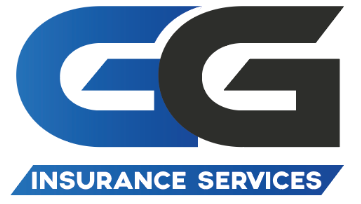
Guest article by Edward Lane of Harbottle & Lewis
For those involved in the games industry, the last four years have been quite the rollercoaster ride. From the breakneck growth and irrational exuberance of 2020 and 2021 to the retrenchment and layoffs of the past 12 months, the games industry has done a more than passable impression of Icarus. But – whisper it – could things be looking up in 2024?
The Covid-19 pandemic and lockdown created a huge surge of demand for games (and boost in revenue for games companies) which fuelled existing structural trends: hardware/format giants hungry for software for their platforms, traditional AAA publishers getting FOMO over mobile and the influx of cash from non-traditional investors in the industry such as private equity and sovereign wealth. The stock prices of listed games companies skyrocketed while interest rates remained close to zero – you could not design a better financing environment for M&A if you tried.
Then economic indicators began flashing red: surging inflation led to interest rate rises and a natural reversion of demand for games back to its underlying long term trend all combined to dampen down M&A and investment activity. 2022 was the industry’s first year without growth in over 20 years. 2023 saw widespread layoffs announced across the industry.
And yet…we’ve seen a flurry of deals announced in recent months: Savvy’s acquisition of Angry Birds maker Rovio, CVC’s acquisition of Jagex, Beacon Interactive’s acquisition of Saber Interactive and Take-Two’s acquisition of Gearbox. Microsoft finally bought Activision. On the investment side, Disney invested $1.5bn in Epic Games and Build A Rocket Boy raised over $110m in Series D funding. At the smaller end, we’ve seen $265 million invested in early stage games companies in Q1 alone – a huge increase from 2023 and a sign that 2024 may be a great time to start and scale a games business. Games-focused VC funds are popping up all over the place: Bitkraft Ventures recently raised $275m for its third fund and Andreessen Horowitz recently raised $600 million for a gaming-focused fund as part of a larger $7.2 billion fundraise.
We expect to see an uptick in activity across both M&A and investment in 2024, with the following being key drivers:
- Opportunities created by former acquirers in belt-tightening mode – a number of games businesses went on something of a spree and are now looking to retrench. This will create strategic opportunities: we’ve already seen Embracer offload Saber Interactive and Gearbox and it recently announced its intention to divide itself into three separate companies. There will be others.
- Technology / media behemoths – hardware is always looking for software. Titans in one medium are always looking to expand. We saw Disney investing in Epic, Netflix has been acquiring studios; could we see one of the Magnificent Seven swoop in on a large AAA publisher?
- Financial investors – despite the overall economic context, we expect the interest of private equity, venture capital and sovereign wealth funds in the industry is only going to increase. CVC’s acquisition of Jagex from Carlyle could be the first of many.
- Game-adjacent technology – it is obviously against the law not to mention generative AI in an article about the games industry, but there is a serious point to be made here. The possibilities around AI are endless – as are the pitfalls. There are likely to be some hugely ambitious start-ups looking to transform the face of the industry raising large sums and possibly being acquired by astute developers, publishers or even broader technology companies (e.g. Nvidia).
- Economic headwinds will continue to diminish – inflation appears to be (touch wood) under control and so the expectation is for interest rate reductions in many economies to begin this year. This will help the likes of private equity who rely on debt to finance their acquisitions and may lead to higher asset prices across the board, which will close the valuation gap between sellers and buyers and potentially bring some listed acquirers back into play as their stock price recovers.
So the future is hopefully looking a little brighter. However, in the here and now, we are still in fairly choppy waters. As lawyers we see a lot of deals, of all shapes and sizes, and there are some clear trends that we can see forming:
- Deal-focused regulation – the Microsoft-Activision saga really put the industry in the global spotlight, and this is against a backdrop of increasing protectionism when it comes to foreign investors (e.g. the NS&I Act in the UK). Some game-adjacent technology has potential military or other sensitive applications. All this means we expect competition and foreign investment regulatory clearances to play an increasing part in deals.
- Importance of pre-deal planning – deals are fragile things and momentum is key, potentially when the economic context is not congenial. Unresolved issues could delay or even derail a deal. With games businesses, the key value lies in the people and the IP – it’s therefore critical that these areas are watertight from a legal perspective. Do you have good quality contracts with all your staff – both employees and freelancers? In particular, has everyone involved in making your game / developing your technology signed up to a provision assigning all their IP rights in what they create to your company? More broadly, does your corporate structure make sense – are there minority shareholders that may cause an issue on a deal? Do you have strong drag-along rights to force a deal through despite dissenting minority shareholders? Time spent fixing these issues before a deal is not time wasted.
- The rise and rise of earnouts – this is where part of the purchase price is deferred and contingent on certain targets being met (usually EBITDA-based). They are a useful tool to bridge a valuation gap between buyer and seller (and we live in an age of valuation gaps). However, they can create the ultimate conflict of interest: the seller has sold out but (usually) still runs things day-to-day whereas the buyer owns, and so would in theory control, the business. It could be in certain circumstances in the buyer’s interest for the targets not to be hit, to avoid paying out more to the seller (and vice versa) thus undermining the desired alignment of interests between the buyer and seller. We see this is often the mostly hotly negotiated aspect of a deal and would expect to see a raft of protections for the seller. These would include carving out day-to-day control of the business for the seller and ensuring the buyer is not able to play around with figures to avoid earnout targets being hit.
- Distressed deals – given the economic hardship of the last couple of years, there could be an increasing distressed element to deals. This creates a challenge for the buyer, as in a true distressed scenario the seller may be in administration or liquidation and so meaningful warranty or indemnity coverage won’t be available. This places the burden on the buyer to use due diligence to flush out issues – but often time is ticking as creditors circle. W&I insurance may be helpful here in providing a measure of cover.
It’s been a turbulent few years for the industry, and the many recent stories of layoffs and other forms of belt-tightening have been disheartening to say the least. That said, things may be looking up – a number of significant deals have already been announced and we ourselves are involved in a number of fundraises and sell-side mandates.

Ed Lane, Managing Associate at Harbottle & Lewis LLP

Harbottle & Lewis LLP is a leading UK law firm focused on the media, entertainment and technology sectors. Our Interactive Entertainment Group has been advising video games clients since the days of the 8-bit console, and is recognised as one of the leading firms in this space, having been ranked top tier for Video Games in all major legal directories for more than a decade.

